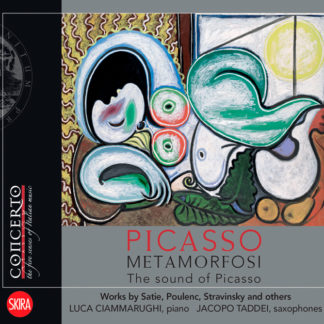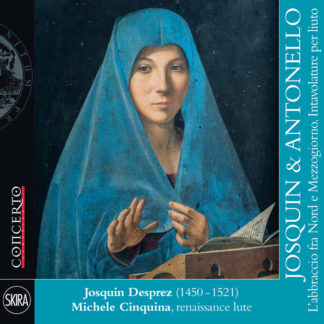Marco Pereira
1. Pixaim (frevo)
Ariel Ramirez
2. Alfonsina y el mar
Julio César Sanders
3.Adios Muchachos
Dilermando Reis
4. Se ela preguntar
Antonio Lauro
5. Vals “La Negra”
6. Vals “Maria Carolina”
Garoto (A. A. Sardinha)
7. Lamentos do morro
Gentil Montaña
8. Suite Colombiana I.El Margariteño (Pasillo)
9. Suite Colombiana II. Guabina Viajera
10. Suite Colombiana III. Bambuco
11. Suite Colombiana IV. El Porro
Giorgio Mirto
12. Villa 31
Jorge Cardos
13. Milonga
Carlos Antonio Carrillo
14. Como llora una estrella
José Rafael Cisneros
15. Zulay
Maximo Diego Pujol
16. Canciòn de la tarde
Marco Nodari
17. Tiliguerta
Popular
18. Zamba de Vargas (Arr. Eduardo Falù)
Manuel Maria Ponce
19. Tres Canciones Populares Mexicanas (I. La pajarera)
20. Tres Canciones Populares Mexicanas (II. Por ti mi corazón)
21. Tres Canciones Populares Mexicanas (III. La Valentina)
Heraclio Fernandez
22. El diablo suelto
Fernando Bustamante
23. Misionera
Giulio Tampalini’s journey into the contemporary guitar world continues: but, this time, his compass points to the south, specifically to the South American continent, where the great variety of native rhythms blends with the cultures of Africa and Europe. A veritable atracción fatal for the six strings, the extremely rich repertoire of dances, timbres and atmospheres is explored with passion and precision by Tampalini, who traverses the sound worlds of Brazil, Argentina, Mexico, Colombia and Venezuela, crossing both the popular repertoire (think of pieces such as Alfonsina y el mar or Adios Muchachos) and the more cultured repertoire of the Antonio Lauro, Alirio Diaz, Manuel Maria Ponce, Máximo Diego Pujol. There is no shortage of tributes by two young Italian composers of almost the same age – Giorgio Mirto and Marco Nodari – to the suggestions of the South. The second volume of Strong Emotions thus reiterates, declining in Latin American rhythms, the concept of the first album: to collect and re-propose those songs that once heard, one would like to know, then listen to again.





